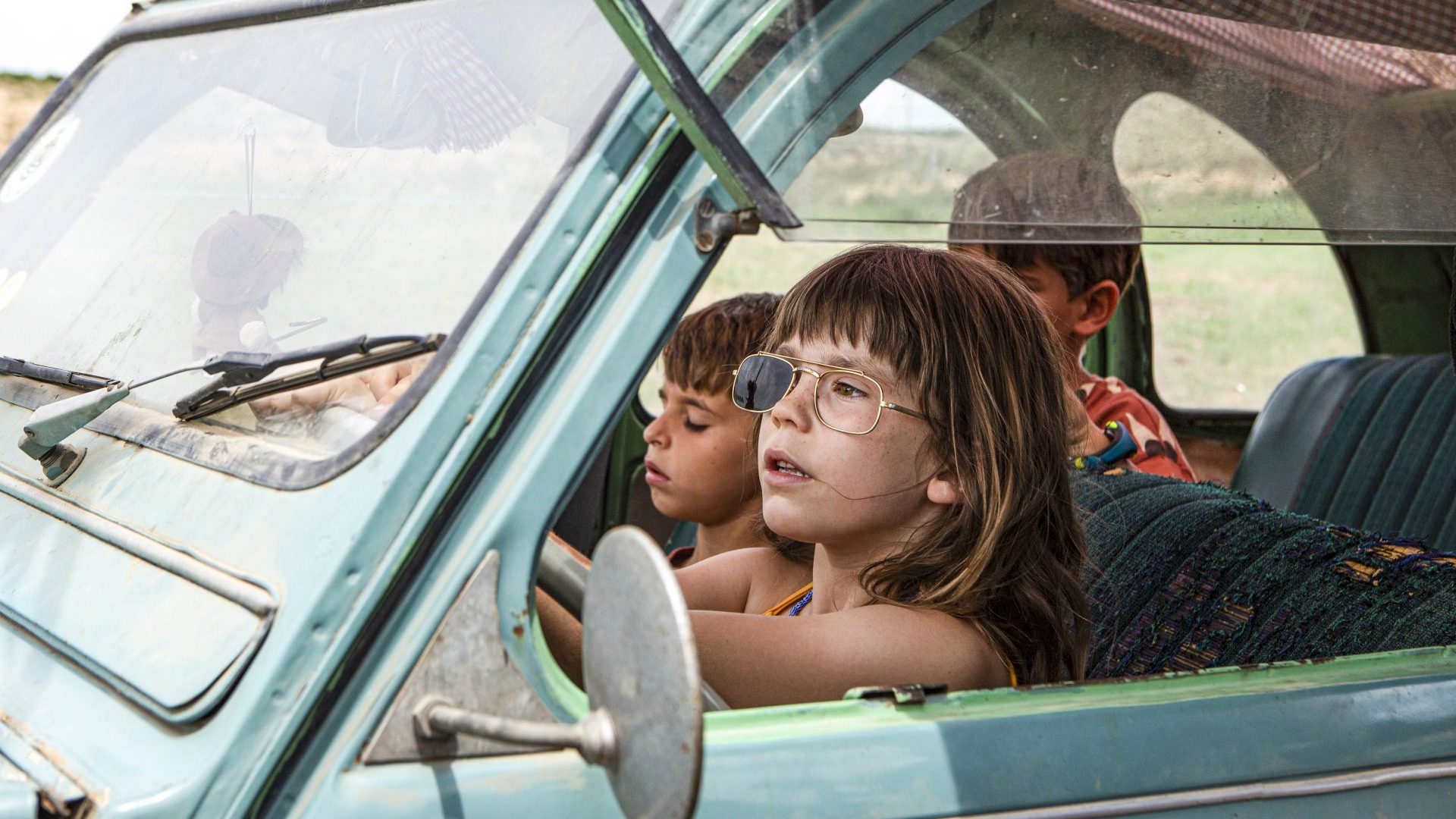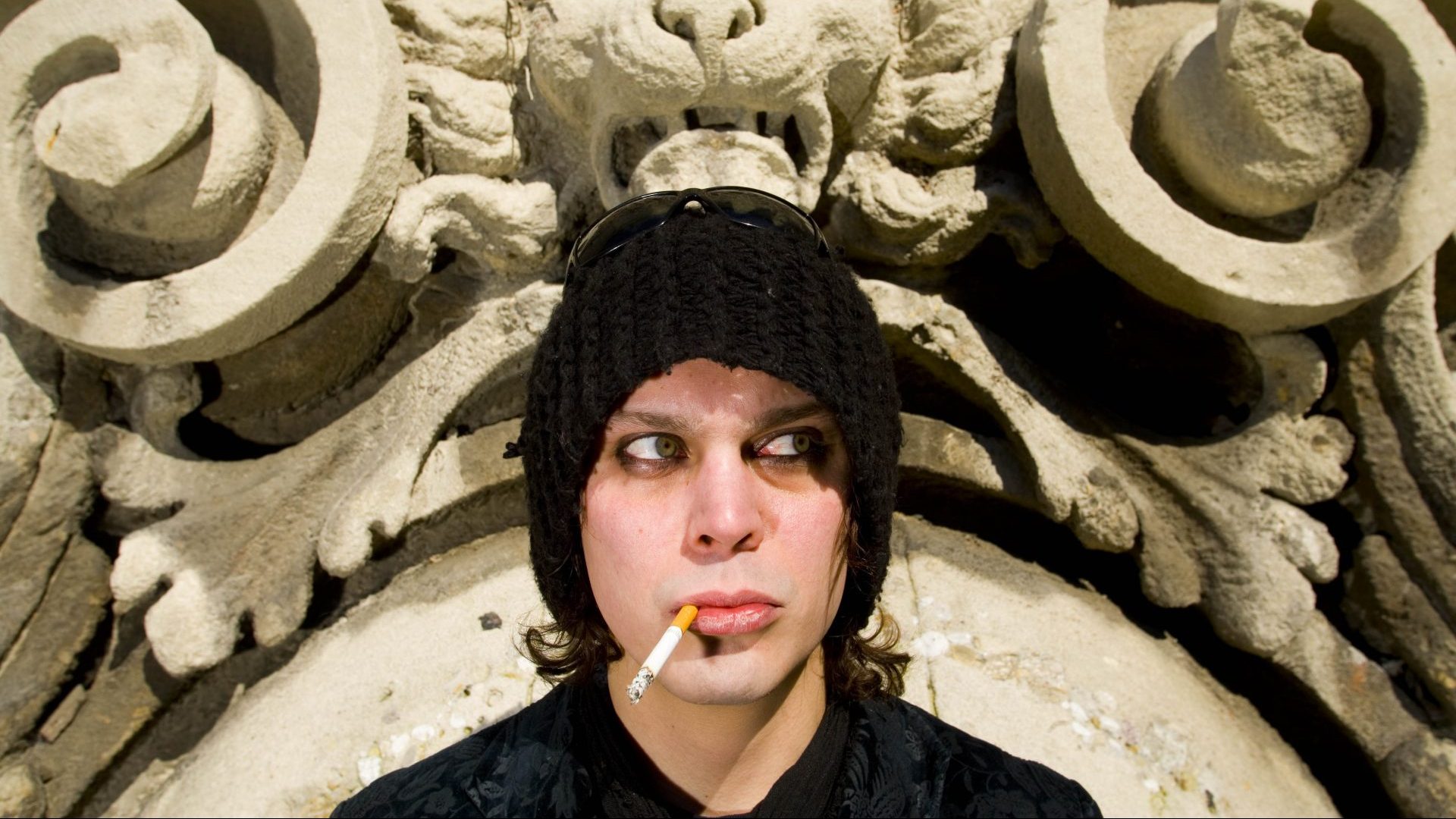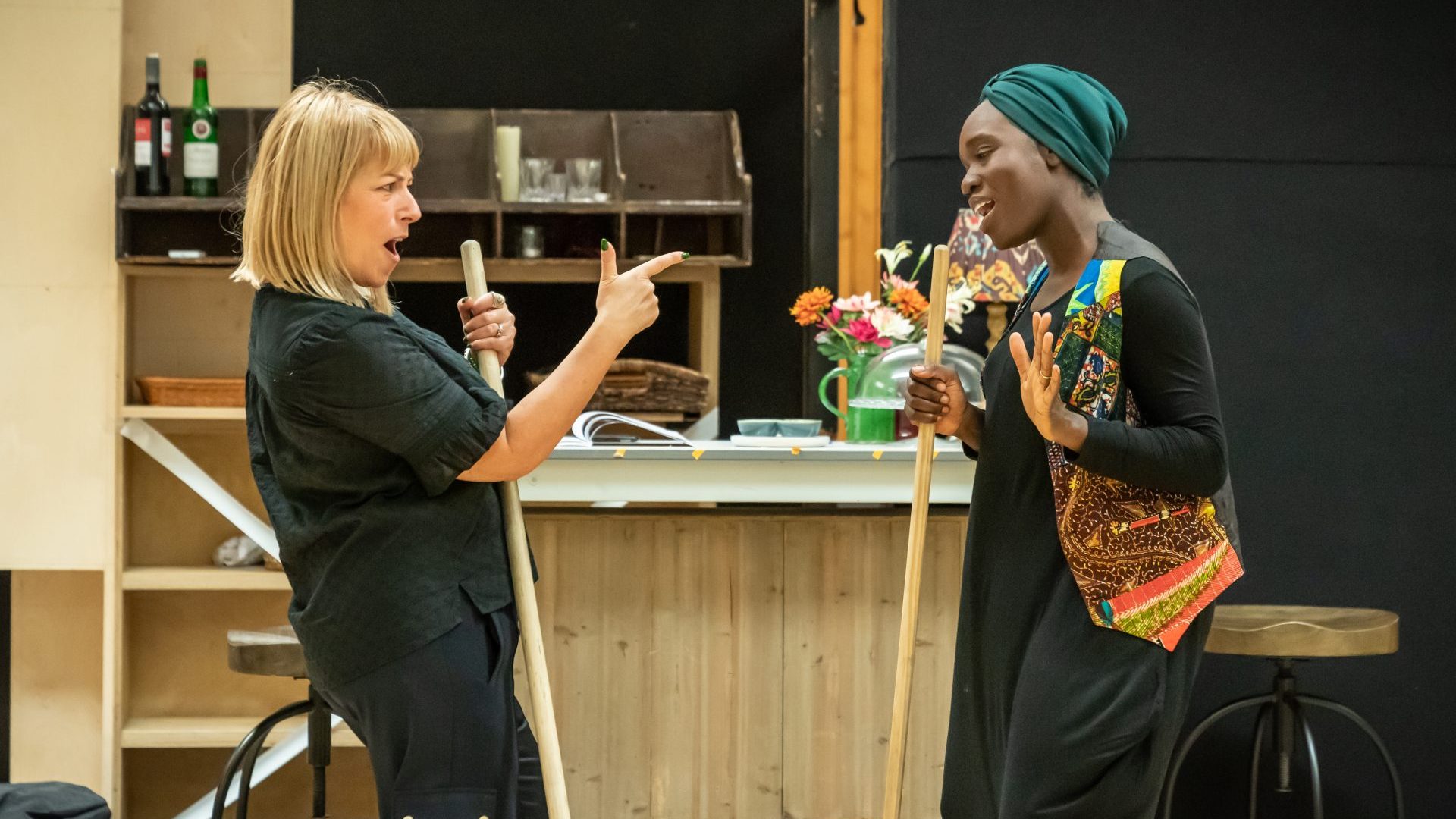Winner of last year’s Golden Bear at Berlin, director Carla Simón’s Catalan
film Alcarràs is, quite literally, a peach of a movie. Set among a large family
who live and work on a farm where the main income is from harvesting peaches, this raucous and occasionally joyous film captures a changing way
of life while depicting an age-old existence in precarious balance.
Specific as it might be to the world of soft-fruit smallholdings and peach varietals, Alcarràs will speak to millions. As Barcelona-based Simón tells me: “Everyone has a village.”
Everyone has a village. The concept of the pueblo is well-known in Spain, as it is in France, Italy, Greece, Ireland and more: that ancestral, rural family home where grandparents perhaps still live, or where parents went for childhood summer holidays.
Alcarràs is just one such village in what Simón calls the “wild west” of Catalonia, not far from the border with Spanish-speaking Aragón. “You
go four villages along in your car and they will speak a different language,
but the problems of life are just the same,” says Simón, whose mother grew up in Alcarràs and where some members of her family still grow peaches.
The film-maker tells me she used to spend Christmas and Easter holidays as a kid in Alcarràs, but that her childhood summers were spent in her own family’s farm, as depicted in her much-admired 2017 debut feature Estiu 1993 (Summer 1993), a film that was also, like Alcarràs, put forward as Spain’s entry for the international film category at the Oscars.
Both films lace the charms of rural life with the bitterness of its harsh realities. In her bravely autobiographical debut, Simón’s six-year-old alter ego is sent to live on the country farm after her parents in Barcelona die of Aids. Alcarràs is similarly concerned with a tough, back-breaking, soul-destroying life, channelled through the eternally grumpy Quimet, a farmer who learns that his family’s land belongs to another old timer who has recently died, and that his ageing father Rogelio has not signed papers proving a hand-shake agreement that took place many years ago.
The real landowner’s son, who lives in town and feels no similar obligations to Quimet’s family, wants to replace the peach trees with a solar panel business, for which he’ll get subsidies and training. The impending threat of eviction and the looming stresses of the harvest give the film a taut, ticking-clock energy that affects the whole family, from the mournful grandpa to his little grandchildren, Iris and her twin cousins, who play in an abandoned Citroën 2CV, to the teenagers, Roger and Mariona, discovering clubbing and dance routines, to the brothers-in-law, sisters and various aunts and, of course, the gossiping materfamilias who can only talk about people who left the village. All have their differing points of view, shifting allegiances and dreams.
Alcarràs stands on its own as a rural ensemble piece capturing a very modern moment in a traditional way of life. Yet it is also part of a growing
trend in Spanish cinema that sees a new generation of film-makers deal with the enduring societal issues of country life. Carlota Pereda’s current horror movie, Cerdita (Piggy), is set in a small, sun-baked town where the local butcher’s daughter is ruthlessly mocked by the pretty girls amid her freshly hung chorizos, morcillas and jamónes. At Berlin last year, Alauda Ruiz de Azúa’s Cinco Lobitos (Lullaby) had Laia Costa playing a new mother from Madrid returning to her seaside Basque village for childcare.
There is also Rodrigo Sorogoyen’s The Beasts (As Bestas in Galician), a French-Spanish co-production starring Denis Ménochet and Marina Foïs as a French couple who seek a quiet rural life in Galicia, restoring old farmhouses. It is harder than they imagine, particularly when they come up against local hostility and a big energy company’s windfarm project.
Elena López Riera’s El Agua (The Water) deals with female sexuality and local legends, centring on a group of adolescents in a rural southern village where the river is “cursed and stinks of death” yet flows through the generations of women-folk. And, following a premiere at San Sebastian last autumn, there is another Catalonian rural drama heading our way in 2023, called Suro (Cork) and directed by Mikel Gurrea. It’s about a smart urban couple who leave Barcelona to refurbish a farm she inherits, bringing their politically-correct, hip, “urban environmentalist” ways to the countryside, including making stripping the bark from the cork forest that surrounds the property into a sustainable eco business. The Catalan-language film, like Alcarrás, shakes up the delicate balance of nature, climate change and seasonal workers.
Meanwhile, Pedro Almodóvar has always made space for the pull of his own La Mancha and “el pueblo de su madre”, particularly powerful in his more recent films including Volver, Pain and Glory and Parallel Mothers. One of many fans of Simón’s film, Almodóvar has said: “Seldom does an ensemble film… achieve such a level of verisimilitude and emotion. Behind Alcarrás’s apparent simplicity lies a meticulous director, with hundreds of hours’ worth of work to make this masterpiece look like a documentary.”
Simón is used to an ensemble – she comes from a large family, with six siblings on her mother’s side, seven on her father’s – and wanted to show the
noise and constant drama of life in such a clan. Amid its lyrical camerawork and gentle plotting, Alcarràs has an almost documentary realism to it, so it shouldn’t have been a surprise to learn that the cast was made up of non-professional actors.
“I prefer to call them ‘natural actors’,” Simón tells me. “We found them by visiting fiestas, ferias, markets, bars, restaurants and schools. We saw over 9,000 people in the area and we were amazed by how curious they were to be part of it. There’s never been a film made in this region so they were very eager to make sure it was a correct depiction. But so many said they couldn’t be in the movie because we were shooting during harvest time and they couldn’t possibly leave their fruits. They care so much about the fruit.”
Simón herself spent two summers living and writing, workshopping and rehearsing her script on her own uncle’s and cousins’ actual peach farm in Alcarràs, a set-up much like the one you see in the final film, with the fields and trees, the barns and little swimming pool.
“There are many moments of fun and beauty, of family meals and sunsets,” she says. “But it is mainly a lot of very tough work in a difficult landscape that is very hot in summer, very cold in winter so it was important for it not to be a romantic portrayal. I had to forget any childhood nostalgia – it is a hard life, dominated by this very precious and delicate fruit.”
Behind China, Spain is the world’s second-largest producer of peaches, and the fruit is like an obsession, each one needing to be handled with care at
exactly the right time. When Quimet, rushing to get his crates loaded off his
forklift and on to trucks, drops a box of the fruit, it leads this gruff man to an
emotional breakdown. “I actually saw this when I was living there,” recalls Simón. “I heard my cousin swearing and yelling and I rushed out to see what
could be the matter and saw him absolutely desperate over his spilt peaches – this is the only way to get the detail and the rhythm of real life.”
Quimet is played by Jordi Pujol Dolcet, a former real-life farmer whose land became too difficult to maintain, but who knew how to pick the peaches correctly and how to drive a tractor and dig an irrigation ditch.
“You cannot fake this sort of thing,” says Simón. “The attachment to the land is the whole story and, you know, each type of farmer has a distinct personality that is linked somehow to what they farm. The peach farmers are delicate, temperamental, careful, each fruit valuable. Those who harvest olives and almonds are very different. They shake the trees and it all comes falling down. So I wanted to show people who really depend on their produce and what that means. Hopefully people will see the film and understand why it is important.”
The textures of Simón’s film don’t reside solely in the various fuzziness of peach skins, from smooth nectarines to those flattened ones we call Saturn peaches and which the locals call Paraguayos. Though the film emerges from personal experience, it is shot through with a sense of international politics. There are the African migrant workers who gather in the town square looking for fruit-picking shifts, desperate to get on Quimet’s little truck; there’s the growing grumble of discontent among the farmers over unfair fruit prices, a protest that will lead to a Ken Loach-like demonstration of solidarity. And there is the teenage son who wants to impress his dad with his harvesting skills even if Quimet wants him to study and get a better life away from the village.
“I wouldn’t know how to make an overtly political film,” says Simón, somewhat disingenuously. “But I was aware from spending so much time in
the area that these are very political matters that concern the future of all our lives.
“For me and for many audiences, the important thing will not be the peaches but the way of family life that is having to change, the economics
that means you can’t maintain this culture of large families all in the same house, all the different generations together. That is the big shift in society. I think it’s a huge problem that nobody is really talking about or addressing.”
I suggest, too, that nobody can make a film in the Catalan language without
being aware of that as a political gesture throughout Spain and Europe. How
important is it to Simón to represent Catalonia in world cinema? “Oh that is a
big task and I don’t see myself like that,” she says with a laugh. “But I am proud of my region, I was born here, it’s my mother language and it’s a diverse area for cinema and for stories because you have the big cities, the sea, the mountains of the Pyrenees, and the arid areas like Alcarràs. I try to be as local as possible in my films, so far, but always audiences in Andalucía or in Galicia in the north, they say to me, ‘oh, this is exactly the same situation in our region’.”
She says that the issues of independence, self-determination and land rights in her film are something far more universal than any political issues around Catalonia. For her, the film is about the future of the family unit and the land. “In the original script, we had a happy ending,” she tells me. “But working there, I saw how pessimistic many farmers were about the future and it would be naive to remain optimistic when you see their concerns.
“But even if my ending is now more ominous, I do have hope for the future
because, ecologically, it’s clear that small farms are better than big agriculture in terms of looking after the land. I don’t know if it will be family-run farms in the future, but I think everyone will see that smaller cooperatives will be the way forward.”
While the rural movie trend is spreading across Europe – think Italy with Michelangelo Frammartino’s pioneering Le Quattro Volte and more recent Il Buco, 2020 documentary The Truffle Hunters and current sleeper hit
Eight Mountains, based on a bestselling novel – Simón tells me that her
next film will be set in the city.
If you’ve seen her films, you feel like you already know Simón, or at least a
very big part of her. She broke free from rural farming to study film, including a year at the London Film School, a route she says is far more open to others in her situation now. “Film and television is much more democratic than it was and I hope my journey can illustrate that – for some young people, like I was, in the rural areas,” she says.
Having listened to her working methods, her careful and nurturing sessions with her ‘natural actors’ and their organic performances, I remark that not every production will allow her such space and time. “I think my favourite moment in the whole process,” she recalls, “is when one of my uncles told me that he can now see that peach farming and film-making are quite similar, that it’s very precise and hand-crafted and delicate and each element needs careful attention and you need a crew of people to help at each stage. I took that as a big compliment.”
Like I said, then – Alcarràs really is a peach of a film.




